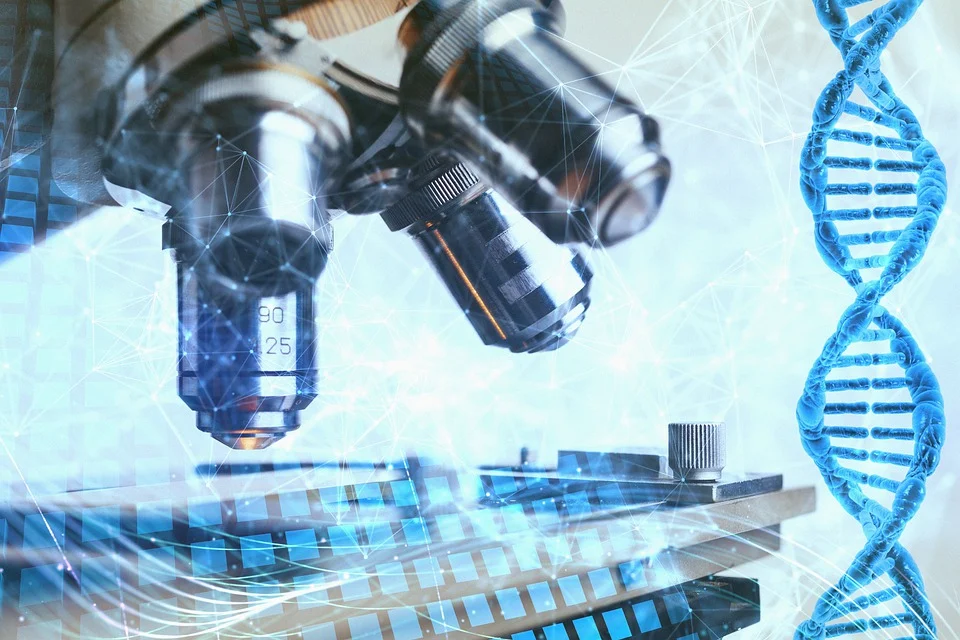It wasn’t long ago that the human genome was utterly unknown. Scientists were still trying to figure out the basics of genetics, and mapping out DNA was a daunting task. But now, there is complete access to genomic services that can sequence your genes and tell you all sorts of information about your health.
It is a revolutionary development, changing the way everyone thinks about healthcare. In this blog post, you will understand the rise of genomic services like gene sequencing and what they mean for the future of medicine.
History of Genome Study
The history of genome study deepens our understanding of the mysteries of life. For centuries, scientists have sought to understand the nature and structure of life at its most basic level, seeking answers in everything from the chemical composition of cells to their patterns of DNA replication.
But it wasn’t until the recent development of advanced technologies that can map entire genomes, illuminating a richly complex world within each living organism.
Today, studying a person’s genes can provide valuable information about their general health and susceptibility to certain diseases, expanding their knowledge about what makes them who they are at the most fundamental level.
What are Genomic Services?
Genomic services are a new and exciting area of healthcare that is just beginning to be explored. Genomic services involve using an individual’s DNA to predict their likelihood of developing certain diseases or conditions. This information can then tailor treatments and prevention plans specifically for each individual.
While the potential applications of these services are still being discovered, there are already several ways in which they can be used to improve health outcomes. For example, genomic testing can be used to identify individuals at increased risk for developing cancer, so they can be screened more regularly or given more intensive treatment if necessary.
These services can also be used to develop more targeted and effective medications and improve our understanding of how diseases develop and progress. In the future, genomic services will likely become an essential part of healthcare, providing people with tailored information and treatments that can dramatically improve their health and wellbeing.
What Types of Genomic Services Are Available?
There are many different types of genomic services available to help researchers and clinicians better understand the complex genetic information contained in an individual’s genome. Some of the most common genomic services include:
Genetic testing
Genetic testing involves performing high-throughput DNA tests on a sample to determine the precise order of nucleotides in a given region or across an entire genome. This technique is commonly used to identify genetic variants involved in diseases or other characteristics. It allows researchers to pinpoint abnormally expressed genes or those with specific base-pair alterations.
Genotyping
Genotyping is another commonly used genomic service that can scan genomes for regions where there are known single nucleotide polymorphisms (SNPs) or copy number variations (CNVs). This type of analysis can help scientists identify certain genetic factors associated with particular diseases or other conditions.
Transcriptomics
Transcriptomics focuses on how genes are turned on or off over time, helping researchers to learn more about how subtle changes in gene activity may lead to disease development. Furthermore, this type of genomic analysis can also provide insights into how different cells respond to various stimuli, such as drugs or toxins.
Gene Expression Profiling
Finally, gene expression profiling allows researchers to assess widespread changes in gene activity across various cells in a sample. By taking these three main types of genomic services into account, researchers and clinicians can gain deeper insight into the inner workings of our complex genetic makeup and more effectively diagnose and treat various disorders.
Who Can Take Advantage of Genomic Services?
In recent years, scientists have already made significant strides in sequencing and analyzing the genomes of various organisms, from humans to microorganisms. As these technologies continue to evolve, they have become more accessible to the general public. Indeed, anyone interested in genomics can now easily submit their DNA sample for analysis using one of the many online services that have emerged in recent years.
Whether you are a researcher looking for genetic insights into a particular condition or simply a curious individual looking to learn more about your ancestry, genomics offers many valuable benefits.

